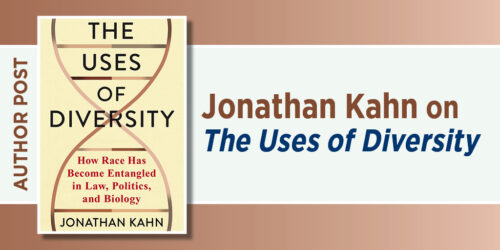Kelly Oliver on Pet Lovers, Pathologized
 “Within our philosophy and within our culture, we cannot take seriously our love and dependence on animals without turning them into medicine and making ourselves sick.”—Kelly Oliver
“Within our philosophy and within our culture, we cannot take seriously our love and dependence on animals without turning them into medicine and making ourselves sick.”—Kelly Oliver
“To love animals is to be soft, childlike, or pathological. To admit dependence on animals — particularly emotional and psychological dependence, as pet owners often do — is seen as a type of neurosis,” writes Kelly Oliver, author of Animal Lessons: How They Teach Us to Be Human, in a recent essay for the New York Times website, The Stone. Oliver argues that we have a complicated relationship with animals, one in which pets are cherished “property” and the act of hunting by presidential candidates symbolizes their ability to keep the nation safe.
Our society now gives legal approval for the use of animals for illness, handicap, or stressful situations to provide emotional support. Courts now allow children to have their pet by their side when called upon to give difficult testimony and doctors write prescriptions for people to bring animals to work for emotional or psychiatric reasons. However, these new regulations reflect our conflicted treatment of animals as well as those who rely on them:
The regulations are very clear: these animals are not pets. They are “serving” an essential therapeutic purpose. The fact that these relationships are circumscribed by laws relegate animals to the role of tools or medication, an act that also pathologizes the people who rely on them. Animals, then, can enter our intimate family units only as pets, which is to say property, or as a result of trauma, disease or disability. This cultural attitude suggests that people who are dependent upon their animals for anything other than amusement or entertainment are abnormal or unhealthy. Loving animals as friends and family is seen as quirky at best and at worst, crazy.
Oliver also describes how philosophy has failed to grasp or appreciate the complexity of our emotions regarding animals. Conventionally, philosophers have focused on questions of whether animals suffer or how animal minds work, are they similar to ours, and whether they deserve similar rights. What is missing from these pursuits, Oliver suggests, “is our psychological and emotional dependence upon [animals].”




